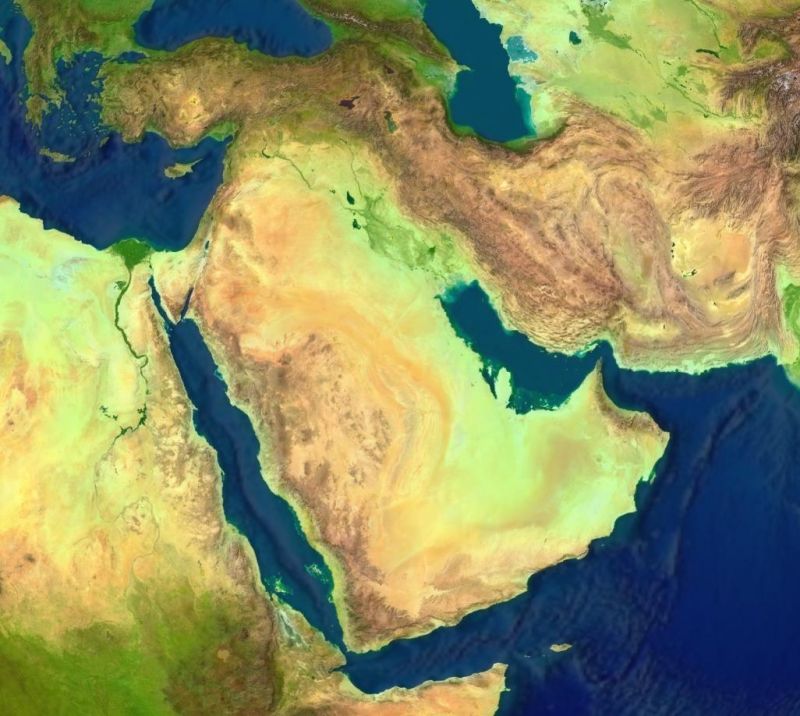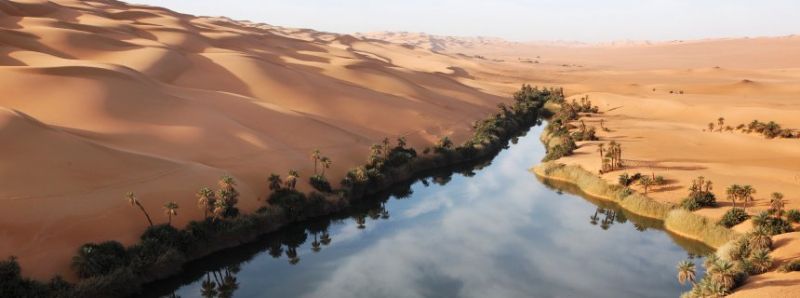European Companies for Water Solutions in Middle East
Published on by Water Network Research, Official research team of The Water Network in Business
European companies are competing in the petri-dish of innovative projects looking to provide water solutions in the arid lands of the eastern Arabian Peninsula.

In the eastern lands of the arid Arabian Peninsula, European companies are competing to find water solutions but it’s unclear if they will maintain patent rights of the technologies being developed.
The 2017 World Economic Forum Global Risks Report included a highlight from the 2016 survey of 750 experts who concurred that water scarcity poses the gravest threat to global society over the next decade.
Some regions are obviously more arid than others but scarcity is not always about the lack of a natural resource, it can also, often, be about over-demand and mismanagement of an existing resource.
In the 1980s and 1990s, Denmark saw the economic and environmental waste of leakages and over-consumption. Policies were implemented to improve the delivery of water and to raise awareness about the value of water.
Denmark has been particularly successful in reducing water wastage in general and in particular has turned wastewater into “resource water” – investing in water is good for society, good for the environment and it’s good for business as it brings energy costs down too.
In a much more arid region where water is substantially scarcer and more expensive than oil, the Arabian Peninsula also sees the great value of investing in producing clean water for good reason: the oil will eventually run out and the peninsula would rely entirely on external sources of imported water. So far the most popular solution and rather expensive means of extracting large quantities of fresh water from the seas has been desalination.
Desalination is very energy intensive, costs a lot and produces brine – a salty sludge that no one really knows what to do with except throw back into the seas (increasing the salinity of the waters) or dumping into the desert (where it creates salt crystal ponds).
In typical Arabian Peninsula fashion: when the UAE announced a major solar-powered desalination plant a couple of years ago, Saudi Arabia responded by building a solar-powered desal plant that would be four times as big.
This kind of competition is good, it’s healthy for capitalism and it’s driving the transition away from fossil fuels to more sustainable sources of getting energy and water. Most countries cannot afford the high price tag of the solar-powered desal plants yet though, or if they do they prefer to invest in something else like wind energy or hydropower, when and where they have an abundance of water already.
Today, an estimated 60% of global production of desalinated water is coming from the Gulf Cooperation Council (GCC) countries of the peninsula and globally desalination could grow by one third by 2020, according to Steve Griffiths, Vice-President of Research at the Masdar Institute of Science and Technology at the International Water Summit in Abu Dhabi.

Between Abu Dhabi and Dubai there is a small strip of coastal land called Ghantoot that is where the EXPO2020 will host some activities. Right now, there is Racing & Polo Club and not much else, except for a testing station where Masdar, the clean energy company of Mubadala, has created five joint ventures (JV) with European companies, including SUEZ, Abengoa, Veolia, and Mascara, plus one US company called Trevi that is developing forward osmosis technology. Each small JV is worth about €1-2 million and they are competing in adjacent plants to research and test new technologies to scale-up and deploy desalination.
These are all very small plants compared to the multi-billion dollar market of offshore rigs drilling hundreds of holes deep into the sea bed in search of and in direct competition with their neighbours to tap into the remaining reserves of oil and gas in the Arabian/Persian Gulf.
But these are important mini projects for Masdar as they have the potential of bringing more clean water in a more efficient way to more people, with the parallel potential of selling the technology patents. It’s like the race to find clean biofuels: the solution will provide control of international aviation and transport, so it’s no surprise that Masdar is investing massively and leading algae pond research to find the cleanest ‘green’ fuel.
Back to the five mini JV plants, only the SUEZ/Masdar one is exploring how to reuse part of the brine and to reduce the overall “outfall” (waste). There is no silver bullet for this: the brine would have to be reprocessed in parallel treatment plants and reinserted into other industries that could use the minerals from the brine.
Read more at: Eur Activ
Media
Taxonomy
- Water Scarcity
- Resource Management
- Water Access
- Technology
- Scarcity
- Business Strategy
- Water Scarcity In Desert area
- Water Supply
- Business Development